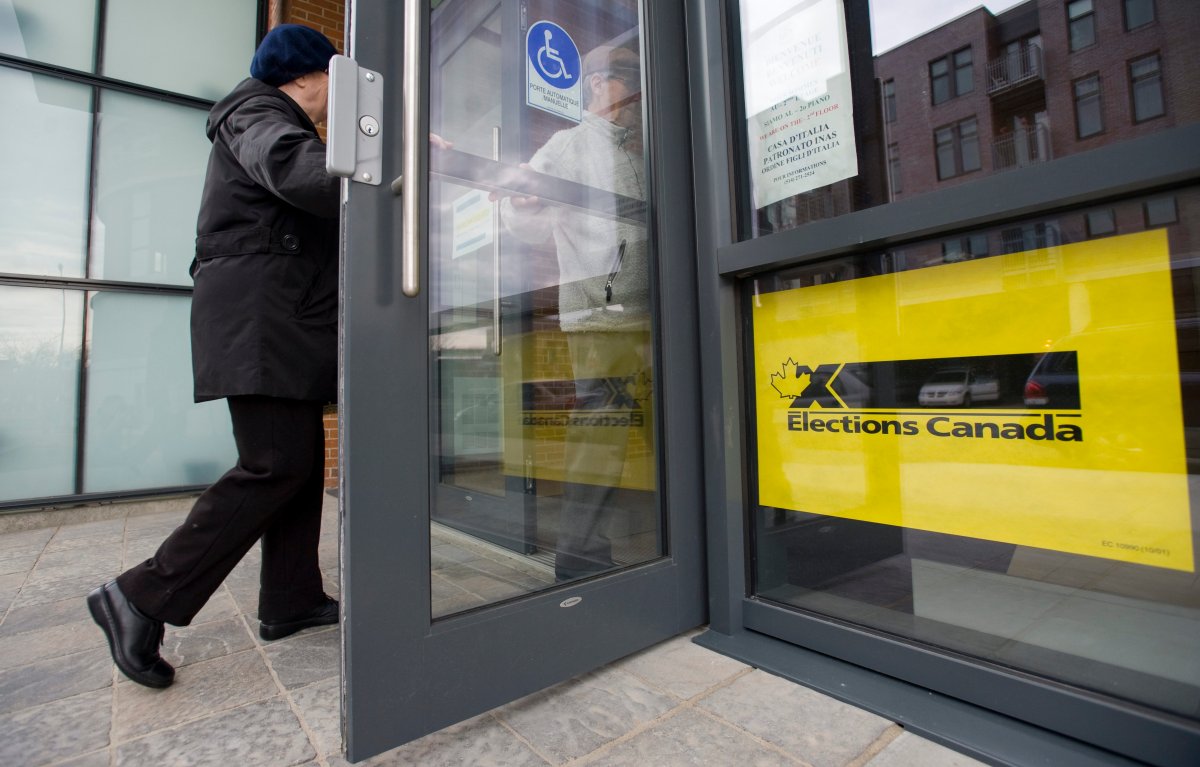TORONTO – A veritable army of volunteers fanned out to community centres, apartment buildings, church halls and basements across the country Monday, setting up the apparatus that voters simply assumed would be there for them when they arrived to cast their ballots.

An estimated 230,000 people carried cardboard voting screens, ballot boxes, tens of thousands of pencils, tape, and, of course, the actual ballots as they transformed empty spaces or otherwise-used facilities into official polling stations.
In the basement of a church in Toronto Centre, Marilyn White dragged a table into place as she set up the ballot box she will be responsible for until the last vote is counted and accounted for – a 14-hour-plus process.
“I really enjoy meeting people and I really enjoy the elections,” said White, a deputy returning officer who has worked previous elections.
READ MORE: Voting issues emerge at Greater Toronto Area polling stations on election day
“We actually are a key factor in everything – to make sure that people have the right identification, and to make the process easier so that people can actually vote.”
Elections Canada estimates the temporary election workers will cover off more than 100,000 ballot boxes at about 65,000 polling stations across Canada.
They will serve those among the 26 million citizens at least 18 years old who are eligible to use one of 244,000 supplied pencils – 18.5 kilometres if laid end to end – to mark the ballots handed them by the deputy returning officer.
For their toils, without which Canadian democracy would have a hard time functioning or at least cost a magnitude of orders more, the deputy returning officers and poll clerks receive a stipend somewhere south of $300.
“Are you a volunteer?” asked a man waiting for a streetcar as Patricia Perkel carried her bag of supplies to her polling place. She nodded.
“Thank you so much for doing that,” he said.
READ MORE: Elections Canada website goes down briefly as Canadians set to vote on Election Day
To earn the pay, they attended a three-hour training session a few days ago, studied a how-to guide, picked up a bag-load of supplies that were among 80 truckloads of election material sent across Canada, and then spent election day watching over polling stations.
Ferne Dezenhouse said she took on her deputy returning officer role because everyone should step up once in a while and do their civic duty.
Most people, she said, simply don’t realize the behind-the-scenes effort by so many ordinary folk that goes in to making the election happen, a process she said, that is vitally important.
“It’s the one chance you really have to vote in an election that’s really free,” Dezenhouse said. “For a lot of people coming, they don’t know what to do with that, and they’re afraid to vote sometimes because of where they’re coming from.”
IN DEPTH: Full coverage of the of the federal election across Canada
As they moved chairs and sealed their ballot boxes, a supervisor turned away a super-keen voter, who arrived about an hour early. He leaves, but is first in a line that snakes up the basement stairs and out the front doors of a church into the morning sunshine when the supervisor finally declares the time to be 9:30 a.m. and the polling place open.
At tables around the basement, about two dozen clerks, deputy returning officers, greeters and information officers waited nervously. They looked like they worked there permanently.




Comments